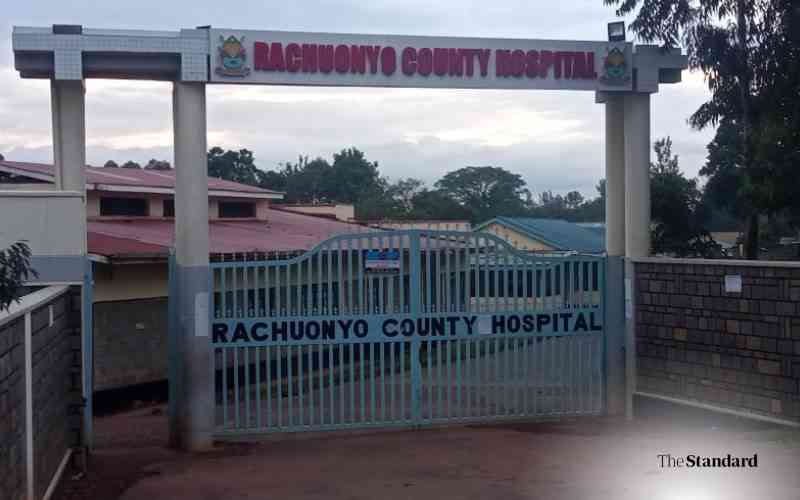African Unicorns: The Billion-Dollar Startups of Nigeria, Kenya, South Africa, Egypt, and Beyond
Key Points

Credits: Charles Forerunner / Unsplash
Funding for African startups last year passed , returning to pre‑pandemic levels, though results have been inconsistent. Investors are now focusing on companies with solid, sustainable plans. This has led to closures like Copia and Gro Intelligence—valued at —while growth‑stage firms like Ghana’s Dash and Nigeria’s 54gene have also faced significant difficulties in 2023.
Despite these setbacks, there is still much optimism for Africa’s startup ecosystem. The majority of tech funding on the continent is—Nigeria, Kenya, South Africa, and Egypt—which together attract over 90% of the total investment, according to the World Economic Forum.
In Nigeria, annual investments now exceed $2 billion, while Kenya’s Silicon Savannah continues to attract significant international capital. in South Africa and Egypt drive innovation through programs like Nigeria’s Yabacon Valley, Kenya’s Startup Act and Egypt’s digital transformation campaigns.
To this day African unicorns and ventures remain in the spotlight: In this vibrant ecosystem, "unicorns" refer to startups with valuations exceeding $1 billion, showcasing their rarity and significant success in the competitive market landscape.
Nigeria’s fintech leaders Flutterwave and Interswitch are transforming digital payments; Kenya’s M‑KOPA is making energy access more affordable with its pay‑as‑you‑go model; South Africa’s TymeBank is advancing digital banking; and Egypt’s MNT‑Halan is building super‑app ecosystems that combine payments, lending, and e‑commerce.
Africa has demonstrated strong potential and resilient spirit through its success stories including the strategic merger between Wasoko and MaxAB.
The examples below illustrate how strategic funding, innovative business models, and smart technology solutions are redefining Africa’s startup landscape, proving that the continent is brimming with creativity and resilience.
The startup environment in Nigeria stands among the most dynamic in Africa, while maintaining leadership positions in venture capital investments and unicorn development.
The, along with its highest population, makes Nigeria an ideal market for startups to reach a large customer base. Lagos, dubbed “Yabacon Valley,” has emerged as a technology center thanks to high smartphone adoption, forward-thinking fintech regulations, and an impressive pool of tech talent.
Fintech startups from Nigeria have gained substantial investment support from international investors. The country hosts multiple unicorn companies specializing in payments, banking, and talent development, which demonstrates Nigeria's position as an economic power and innovation hub across the continent.
Interswitch is a leading Nigerian fintech that built the digital payment infrastructure powering financial transactions across Africa. Founded in 2002 as an Intel‑bank switching platform, it has since evolved into a full-service payment ecosystem connecting banks, merchants, and consumers through secure solutions.
Its product lineup includes Verve Card and Quick teller platform Interswitch enables smooth digital transactions that support all types of payments, from retail transactions to government fund distributions, to achieve financial inclusion throughout Africa.
Through its advanced technology platform and extensive banking sector connections. Interswitch functions as a fundamental component of Africa's digital economic infrastructure. It holds a dominant market position in Nigeria and is recognized as one of Africa’s most influential fintech brands due to its successful regional expansion.
Flutterwave is a Nigerian payments technology company that enables African businesses to simplify their online payment processes. The company launched in 2016 and provides merchants with a unified API platform to receive and process payments across multiple currencies while linking local African markets to the global economy.
It has become one of the fastest-growing fintech companies on the continent because its user-friendly technology attracts enterprises, startups, and international corporations.
Through its innovative solutions Flutterwave has enabled thousands of businesses to expand their operations by simplifying payment processing and facilitating international trade.
OPay operates as a Nigerian super-app and fintech platform that transforms everyday transactions methods for millions of users. Originally part of Opera’s mobile ecosystem, it shifted its focus to mobile payments, money transfers, and microlending.
Its mobile wallet and agent network of OPay serve as essential tools to deliver digital financial services to people without bank accounts while offering secure, affordable, and convenient transaction options.
The company stands out in the market by offering a unified mobile experience that combines multiple services to deliver financial inclusion across Nigeria.
Andela is a talent accelerator that connects Africa’s top software developers with global tech companies. Founded in 2014 in Lagos, Andela was created to address the shortage of skilled software engineers in Africa while meeting international market requirements.
Through its training program and developer placement services, it has changed the global views about African tech capabilities while helping numerous companies extend their engineering forces through remote operations.
In 2021, Andela reached unicorn status thanks to its innovative model and significant funding milestones, establishing it as a leader in worldwide tech talent recruitment.
Its success has helped African developers secure better opportunities and has transformed work environments by supporting distributed remote teams.
Moniepoint, formerly known as TeamApt, is a Nigerian fintech company that provides digital banking solutions to underserved consumers and small businesses. Initially, the company started by developing back-end software for traditional banks before shifting to build a comprehensive digital banking platform that uses agent-operated outlets to deliver financial services to remote communities.
Today, it uses agent-operated outlets to deliver financial services, allowing small retail shops to offer banking services that connect the informal economy with the traditional banking system.
Moniepoint achieved rapid growth through its technology-driven financial inclusion strategy, which enabled the processing of billions in transactions while serving millions of customers, demonstrating the company's fast expansion.
Known as the “Amazon of Africa” because it brings together millions of buyers and sellers on one complete e-commerce platform. Jumia established its operations in Nigeria during 2012 to create an end-to-end e-commerce system that combined marketplace services with logistics and digital payment solutions.
Through its platform, users can access a broad selection of consumer goods including electronics and fashion items, while benefiting local businesses through integrated inventory management and online marketing solutions.
By solving delivery and infrastructure challenges unique to African markets, Jumia has played a key role in advancing digital commerce across the continent, exemplifying both the promise and the volatility of tech companies in emerging markets.
Jumia achieved unicorn status as a pioneering tech company in Africa through its 2019 IPO which initially valued the company at around $1.1 billion.
Known as the “Silicon Savannah,” Kenya’s startup scene is a leading innovation center in East Africa, with Nairobi at the heart of its growth. The development of the tech industry started with its initial achievements in mobile money services and its supportive environment for fintech, e-health, and agritech pilots.
According to Switzerland Global Enterprise, Kenya is well-positioned as a technology hub in Africa due to its skilled workforce, improving internet infrastructure, and government policies that actively promote innovation.
Notably, the country introduced one of Africa’s first Startup Acts, which has played a key role in fostering a vibrant startup ecosystem. Collaborative efforts by the government and the private sector have established tech hubs and incubators, turning Nairobi into the natural starting point for regional business expansion.
M‑KOPA is a Kenyan company that combines fintech and solar energy to make essential products more affordable. The company launched its operations in Nairobi during 2011, offering affordable solar home systems that they could pay for in small installments using mobile money. The innovative approach allowed poor households to switch from costly kerosene fuel toward dependable solar illumination and phone power.
Its product line is to include smartphone financing and appliance financing along with financial services, along with other financial services for underbanked customers.
The company now serves more than 5 million customers across Kenya, Uganda, Nigeria and Ghana leading a "tech for good" organization that combines clean energy with financial inclusion to improve lives in Africa.
Formerly known as Sokowatch, is a Kenyan e-commerce startup that is changing how informal retail shops get their supplies. The mobile app and SMS ordering system of Wasoko enable shopkeepers to receive free same-day delivery of fast-moving consumer goods such as soap and beverages from nearby warehouses. The platform extends trade financing options to retailers who can buy merchandise through credit assessments based on their historical sales performance. This model helps keep store shelves full and prices affordable, while also boosting the financial stability of small businesses.
The platform reached more than 50,000 active shop users by 2022 while experiencing annual revenue growth of three times. Africa's informal retail sector experiences a game-changing transformation because of this company, which has the combination of solid physical assets, like warehouses and delivery trucks, with advanced technology and credit scoring, which is proving to be a real game-changer for Africa’s informal retail sector.
South Africa stands out in Africa thanks to its advanced economy that features well-established financial systems and developed retail and telecom industries. It advantages from its solid infrastructure, together with a substantial middle-class consumer base and corporate funding opportunities (many African headquarters and investors operate from Johannesburg and Cape Town).
Although major companies such as Naspers and MTN once dominated the tech industry, a surge in university talent and venture capital has allowed the startup scene to flourish.
Government support for tech R&D and business incubators, combined with numerous accelerators and venture funds, has spurred growth in sectors like fintech, e‑commerce, and enterprise software.
South African startups can hone their innovations in this advanced market and then scale into other African and global markets, demonstrating growth potential through 2025.
Established as South Africa’s first digital bank, TymeBank provides mobile-first financial services with low fees, reinventing traditional banking. It entered the market in 2019 through its distribution model, which teams up with retail chains Pick n Pay and Boxer to operate banking kiosks within their grocery stores.
Through its digital innovations combined with retail locations, TymeBank achieved its goal of reducing banking expenses while serving populations that lacked access to financial services.
The innovative banking system of TymeBank together with its fast-growing customer base, drew major investment partners. In the 2023–2024 funding round, the bank achieved unicorn status by raising $250 million from investors including Nubank and CDC Group. Using the infusion to develop new products and improve its mobile platform while entering international markets, starting with the Philippines.
Based in Cape Town, Yoco is a fintech startup focused on providing payment solutions and point‑of‑POS technology to empower small businesses. It addresses Africa’s SME sector by offering inexpensive card readers alongside an easy-to-use payment application, enabling all business sizes, from market vendors to local shops, to easily accept digital payments.
Its suite of business tools, including sales analytics and working capital options, plays a key role in promoting financial inclusion in cash-dominated economies.
Yoco received $83 million in funding during 2021 and processed more than $1 billion in annual transactions, positioning it close to unicorn status. With its rapid growth, solid market presence, and ongoing innovations in digital payments, Yoco is transforming the local payments' industry.
Egypt has emerged as the technological hub for North Africa, driven by a population of over 100 million and a growing middle class that increasingly relies on digital services. The startup ecosystem in Cairo has experienced explosive growth because of government backing through investment funds, the Fintech Act and international accelerator partnerships.
The country benefits from three main advantages, which include a large pool of engineering graduates, high smartphone adoption rates, and its geographic position that connects Middle Eastern and African markets.
By 2025, Egypt is projected to be one of Africa’s major startup ecosystems, producing a fintech unicorn and several high-profile startups. Egyptian startups take successful models from other markets such as ride-hailing and food delivery and adapt them to local requirements.
It became Egypt’s first tech unicorn when it merged Halan’s ride‑hailing and delivery service with MNT Investments’ microfinance operations to create a fintech super‑app. The platform launched in 2021 as a single app that connects lending services with digital payments and e-commerce functionality for underbanked consumers and microbusinesses.
The mobile-first platform and extensive agent networks of MNT-Halan simplify financial transactions by allowing users to easily obtain small loans, make payments, and shop—all within a single application. It stands out for its data‑driven credit scoring and real‑time digital payments technology.
Fawry operates as an Egyptian electronic payment leader, which transformed everyday transactions in an economy that historically relied on cash payments. Founded in 2008, it has become a major force in Egypt’s digital payments' scene, which allows users to pay bills, transfer money and buy goods using POS terminals, mobile apps and online platforms throughout the country.
The platform provides simple digital payment solutions that connect banked, and unbanked populations and now serves over 35 million Egyptians.
Swvl operates as a Cairo-based transportation startup that transforms urban mobility in emerging markets through its technology-based bus and van ride-sharing platform. Through the app, users can reserve seats on fixed-route shuttles that offer an affordable alternative to traditional public transit. Smart routing algorithms help optimize travel routes, providing both convenience and affordability.
It has expanded its services into Kenya, Pakistan, and Jordan. The company continues to attract millions of riders with its innovative solutions despite facing challenges from the COVID-19 pandemic and market volatility which attracts millions of riders to its urban transport solutions.
In addition to the leading markets mentioned above, many other African nations have seen the rise of unicorns or have startups on the verge of becoming unicorns.
These companies show the pan-African nature of tech innovation, often expanding beyond their home base to regional markets. Here are a few:
Senegal reached a milestone in 2021 when it became the first unicorn in Francophone Africa. Wave is a mobile money provider that achieved unicorn status in 2021 by saving and withdrawing funds with transfer costs below 1%. Wave entered the market in 2018 in Senegal through a strategy of undercutting telecom-led mobile wallets such as Orange Money and introducing a QR-code-based cash handling system.
The company made a significant impact by enabling digital financial services for a wider audience and compelled traditional providers to reduce their fees.
Its growing footprint in West Africa paves the way for further expansion throughout the WAEMU monetary union, drawing renewed investor interest in French-speaking Africa.
Yassir has emerged as a super‑app from Algeria, launching in 2017 under the leadership of a U.S.-trained Algerian founder. Initially started as a ride‑hailing service, Yassir quickly expanded with food delivery and grocery delivery and financial services. The user base of the company reached 8 million subscribers throughout Algeria, Morocco, Tunisia and French-speaking African territories by 2022.
By addressing underdeveloped public transport and e-commerce infrastructure with mobile-based integrated solutions, Yassir dominates the local ride-hailing market and fills a gap in delivery services. The digital wallet Yassir Pay represents a promising opportunity because of Maghreb's region's minimal banking infrastructure.
Chipper Cash represents the heart of Pan‑African innovation. Launched in 2018 is a money transfer app that helps people send and receive funds quickly at low cost, whether making local transactions or sending money from abroad. It is a fast financial solution.
It offers cheap fees compared to traditional banks. It has a strong presence in Africa, with offices in countries like Ghana, Nigeria, Uganda, Kenya, and South Africa. By 2021, the app had already reached 4 million users. Allowing them to transact seamlessly across borders via Africa’s first interoperable wallet system.
It includes crypto trading and US stock investing to its services and continues to meet the growing demand. Chipper expands its reach, increasing regulatory approvals and pan‑African roots underscore its ability to drive change and connect continents.
The unicorns of Africa have transformed business operations across the continent while sparked a technological shift that transforms traditional challenges into real opportunities.
From Nigeria’s fintech innovators such as Flutterwave and Interswitch to Egypt’s all-in-one app pioneer MNT‑Halan, these companies prove how entrepreneurial spirit combined with advanced technology and strategic partnerships can revolutionize digital payments and energy and mobility industries.
Looking ahead, the future of Africa’s unicorns club is promising and groundbreaking. The emerging technology of South Africa’s Yoco with its innovative payment solutions—and other companies from Ghana, Kenya, and Tunisia are expected to enter the elite ranks of unicorn companies.
As these companies refine their business strategies and expand their reach, Africa’s tech landscape is set to evolve even more dramatically.













